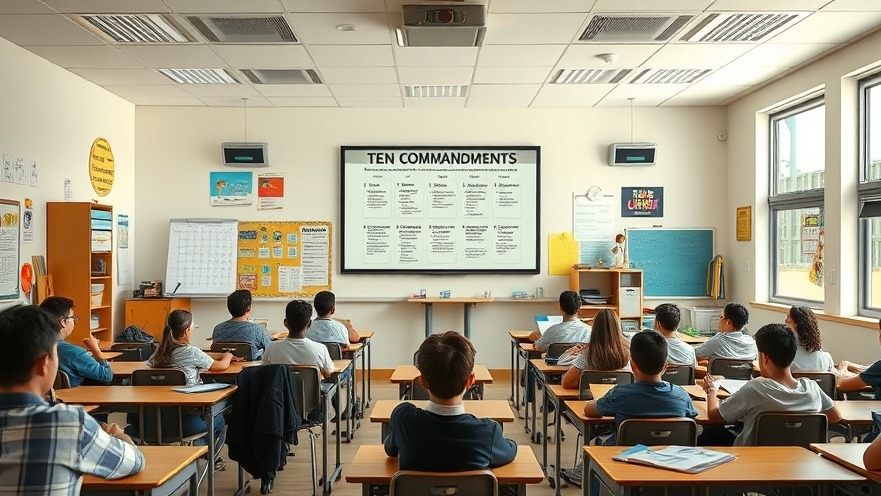
Understanding the New Law in Texas Regarding the Ten Commandments
As several school districts across Texas prepare to comply with a new requirement, a significant legal change concerning the display of the Ten Commandments has sparked various conversations across communities. Under this new law, all public schools in Texas will be required to post a donated display of the Ten Commandments, a mandate that has stirred debates on the separation of church and state and the implications for public education.
The Legal Background: What Led to This Requirement?
This legislation links back to a broader movement advocating for the integration of religious elements in public spaces, particularly Schools. Advocates argue that the display of the Ten Commandments is fundamental to moral education. However, critics express concerns over potential violations of constitutional rights, pointing out historical precedents where similar exhibits were challenged and often deemed unconstitutional.
Community Response: Embracing or Resisting Change?
Local reactions have varied markedly among communities across the state. In cities like Dallas, community debates have erupted around this legislation, with school boards divided on how to approach these requirements. Supporters in the faith community argue that the opportunity to reflect on moral teachings is vital for students, while opponents maintain that public schools should remain secular spaces that respect all belief systems.
Implications for Public Education: Navigating Between Faith and Law
The requirement to display the Ten Commandments raises pressing questions regarding educational integrity and inclusivity. How will this affect curriculum transparency? Are schools prepared to navigate potential backlash from parents and advocacy groups? As districts begin to implement this law, one thing is certain: the dialogue surrounding educational reform and religious freedom is far from settled.
Future Trends: What Lies Ahead for Texas Schools?
The future of Texas education may hinge on how well school districts balance the demands of this law with the need for inclusive practices. Expect ongoing discussions in local governance bodies and possible challenges in court as communities rally around or against the implementation of this mandate. The intersecting paths of public safety, civics education, and religious expression will continue to unfold in the coming years.
Additional Context: Local Governance and Public Sentiment
As Dallas faces potential changes, understanding community desires is critical. For districts navigating similar waters, public forums will likely become a venue for local leaders to gauge sentiment and adjustments to policy before mandates are enforced. This rising need for transparency reflects broader themes in local government, where citizen engagement is increasingly crucial in shaping educational policies.
With state and local elections coming up in 2025, this topic has become even more relevant, as candidates will need to address the implications of laws like this one. Discussions about accountability and community values in education are poised to be pivotal issues on ballots across Texas.
Final Thoughts: The Role of Public Discourse in Education
As Texas moves forward with this important next step in legislation, community members are encouraged to remain informed and engaged. Whether you’re a parent, educator, or local leader, your voice matters in shaping the educational landscape for future generations.
Stay updated with local governance and critical topics influencing Dallas schools. Get involved in community discussions about this mandate and participate in events addressing the implications for public education.
 Add Element
Add Element  Add Row
Add Row 



Write A Comment